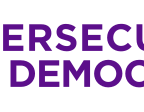Cybersecurity for Democracy
Our theory of change for reducing online harms
The NYU Cybersecurity for Democracy project is a research-based effort to expose online threats to our social fabric — and recommend how to counter them. Our focus is on systems, revealing the ways that online platforms leave themselves open to mis- and disinformation attacks that mislead users and erode trust. Below we describe our theory of change.
Social media platforms are vulnerable to social trust attacks that undermine democracy. Before the 2020 U.S. elections, for example, Facebook was flooded with paid ads that spread emotional and false messages about the safety of voting systems. After the election, polling data showed that millions of Americans believed that election fraud had occurred on a massive scale and resulted in the theft of the election. This is just one example of how inaccurate information can be weaponized online and is threatening democracies globally.
To understand how messages travel online, we need data. Cybersecurity for Democracy collects platform data through a variety of means and tools, including reports and APIs published by social media platforms, as well as crowdsourcing tools such as Ad Observer. We respect people’s privacy and we do not collect any personal data from users. Our research methods are reviewed and approved by NYU’s Institutional Review Board (IRB).
We use a variety of analytical tools to understand online messaging, including topic modeling, machine-learning, aggregation, grouping, and other techniques.
Our datasets and code are available to researchers, journalists, and the public through websites such as Ad Observatory, via public repositories such as GitHub, and via partnerships with research efforts such as Stanford’s Virality Project.
As academics, we publish and present scholarly research based on the data we collect and analyze. Journalists use data to investigate harms and shortcomings in transparency of online messaging. Civil society organizations use tools to identify damaging messaging and conduct analyses of harms to vulnerable populations.
We work with partners to inform the public and policy makers about how mis- and disinformation travels online. For example, we are working with other researchers to develop standards for universal digital ad transparency. The goal is to increase transparency so researchers and journalists can better expose harms and reduce the spread of online mis- and dis-information.
Cybersecurity for Democracy is a research-based effort to expose online threats to our social fabric — and recommend how to counter them. We are part of the Center for Cybersecurity at NYU.
Would you like more information on our work? Visit Cybersecurity for Democracy online and see how tools, data, investigations, and analysis are fueling efforts toward platform accountability. You can:
- Follow this Medium feed.
- Sign up for our newsletter at www.cybersecurityfordemocracy.org
- Find us on Twitter: @cyber4democracy and @lauraedelson2
